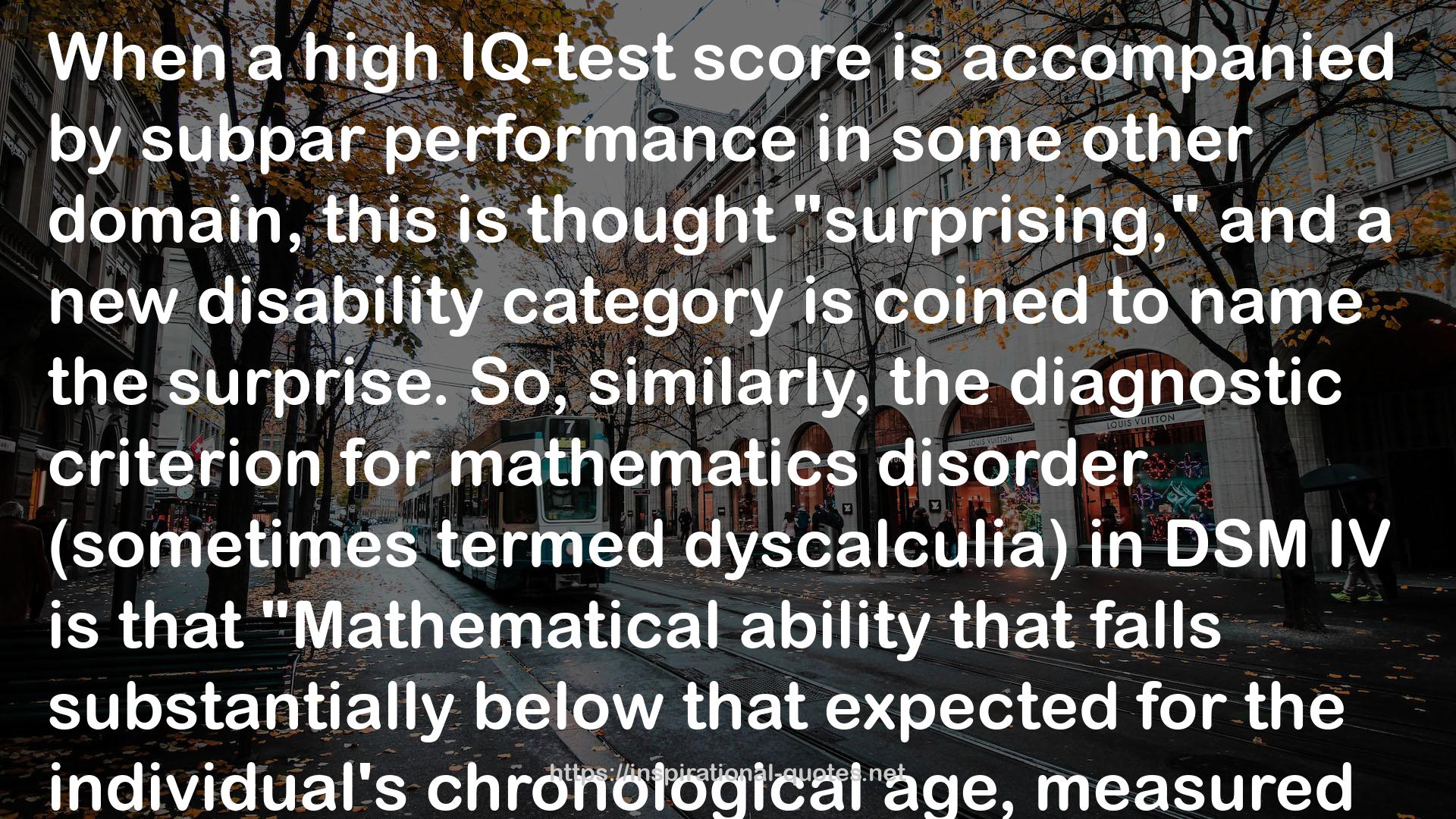" When a high IQ-test score is accompanied by subpar performance in some other domain, this is thought "surprising," and a new disability category is coined to name the surprise. So, similarly, the diagnostic criterion for mathematics disorder (sometimes termed dyscalculia) in DSM IV is that "Mathematical ability that falls substantially below that expected for the individual's chronological age, measured intelligence, and age-appropriate education" (p. 50)-
The logic of discrepancy-based classification based on IQ-test performance
has created a clear precedent whereby we are almost obligated to create a new disability category when an important skill domain is found to be somewhat dissociated from intelligence. It is just this logic that I exploited in creating a new category of disability- dysrationalia.T he proposed definition of the disability was as follows:
Dysrationalia is the inability to think and behave rationally despite adequate intelligence. It is a general term that refers to a heterogeneous group of disorders manifested by significant difficulties in belief formation, in the assessment of belief consistency, and/or in the determination of action to achieve one's goals. Although dysrationalia may occur concomitantly with other handicapping conditions (e.g., sensory impairment), dysrationalia is not the result of those conditions. The key diagnostic criterion for dysrationalia is a level of rationality, as demonstrated in thinking and behavior, that is significantly below the level of the individual's intellectual capacity (as determined by an individually administered IQ test). "
Image for Quotes
 The logic of discrepancy-based classification based on IQ-test performance
The logic of discrepancy-based classification based on IQ-test performancehas created a clear precedent whereby we are almost obligated to create a new disability category when an important skill domain is found to be somewhat dissociated from intelligence. It is just this logic that I exploited in creating a new category of disability- dysrationalia.T he proposed definition of the disability was as follows:
Dysrationalia is the inability to think and behave rationally despite adequate intelligence. It is a general term that refers to a heterogeneous group of disorders manifested by significant difficulties in belief formation, in the assessment of belief consistency, and/or in the determination of action to achieve one's goals. Although dysrationalia may occur concomitantly with other handicapping conditions (e.g., sensory impairment), dysrationalia is not the result of those conditions. The key diagnostic criterion for dysrationalia is a level of rationality, as demonstrated in thinking and behavior, that is significantly below the level of the individual's intellectual capacity (as determined by an individually administered IQ test)." style="width:100%;margin:20px 0;"/>